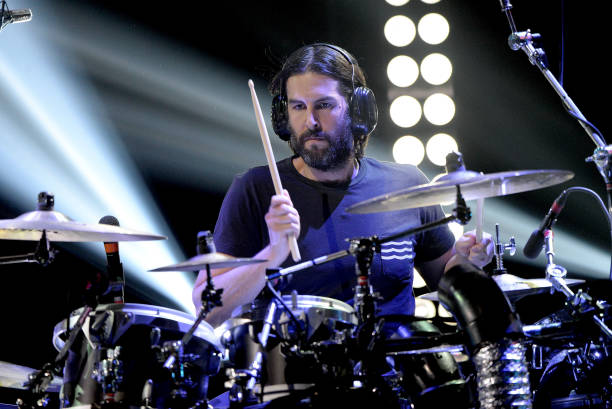In the complex world of music, few bands have captured the raw emotional core of an era as profoundly as Linkin Park. Known for their ability to evolve while staying rooted in their signature sound, the band’s recent discussions about their return have sparked a wave of curiosity and anticipation among fans. Central to these conversations are two pivotal changes: the absence of their longtime drummer, Rob Bourdon, and the introduction of a new vocalist to the lineup. These shifts not only mark a new chapter for the band but also reflect their resilience and dedication to moving forward while honoring their storied legacy.

Rob Bourdon, a cornerstone of Linkin Park’s rhythmic foundation, has been noticeably absent from the group’s recent activity. For fans, his steady presence behind the drum kit was as integral to the band’s identity as their soaring choruses and genre-defying compositions. The band has chosen not to delve deeply into the reasons for his absence, offering only glimpses of acknowledgment that his decision is personal and respected. While this lack of clarity leaves room for speculation, it also underscores the band’s collective focus on what lies ahead rather than dwelling on what is lost.
Stepping into this evolving dynamic is a new vocalist, whose presence has naturally reignited comparisons to the late Chester Bennington—a towering figure in the band’s history and an irreplaceable voice in modern rock. Rather than attempting to replicate Bennington’s distinctive sound, the new vocalist aims to bring a fresh energy while respecting the emotional weight of Linkin Park’s legacy. This delicate balance, while fraught with challenges, signals the band’s willingness to embrace transformation rather than shy away from it.
The decision to return after years of introspection wasn’t made lightly. Linkin Park has always been more than a band; they’re a shared catharsis, a voice for those navigating life’s struggles. Their comeback reflects this ethos, blending nostalgia with a renewed sense of purpose. It’s not about reclaiming the past but rather about shaping a future that both acknowledges their journey and embraces new possibilities.
As fans grapple with the absence of Bourdon and the new dynamics within the lineup, the core of Linkin Park remains intact: their ability to connect, innovate, and inspire. Their music, a tapestry of vulnerability and strength, serves as a reminder that growth often requires change. For the band, this moment is less about filling voids and more about evolving into something that honors their roots while forging new paths.
Linkin Park’s return, marked by uncertainty and renewal, is a testament to their enduring relevance. It’s a reminder that even in the face of loss and change, the essence of what they represent—hope, resilience, and connection—remains unshaken. This next chapter may differ from what came before, but it’s undoubtedly one that keeps their spirit alive.
